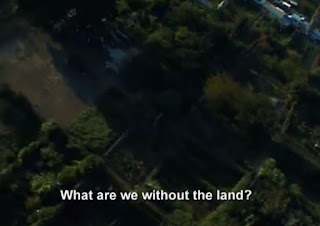I saw an ad soliciting a restaurant & urban garden operation and wrote to the solicitor looking to find out more. My note is below.
11 January 2012
Hello Mr. Aryeh,
I recently noticed your post looking for a farm/restaurant in your building: http://www.cityfarmer.info/2012/01/09/ wanted-farmers-to-farm-a- rooftop-in-los-angeles/. I'm a community member and casual blogger with a keen interest in gardening and public space, so this post really caught my attention.
First of all, it's wonderful that you're encouraging this kind of venture-- it makes so much sense in Los Angeles to have green rooftop space, considering how our weather is suitable for growing so many things year round. I wonder whether the owners would be interested in the idea of opening the garden to the community? Perhaps providing allotments for a small yearly fee to residents in the nearby buildings? Urban gardening has really gained momentum in these last few years, so it's a great time to start a project like this.
I look forward to hearing from you!
Best,
Narinda
So far, no response. Understandable. I wonder how long it will take for our sunny Los Angeles catch on to the rooftop gardening movement that's already happening in other urban areas. Does Los Angeles building code have more lax requirements for how strong a rooftop must be than New York City? When I visited LA Community Action Network's rooftop garden, that seemed to be one of the bigger concerns.
Having a restaurant tenant might be more profitable in dollars than having a community garden, especially considering liability issues, but building goodwill in a community is an important endeavor that doesn't seem to get much attention anymore-- at least not until there's money to be made. This is a sad thing. (This is a general feeling that I can't pin on this particular development because I know little about the operation or building owners, but it is the sense that I get from my own and others' observations about what has been happening in Downtown LA for the last decade.)
Having a restaurant tenant might be more profitable in dollars than having a community garden, especially considering liability issues, but building goodwill in a community is an important endeavor that doesn't seem to get much attention anymore-- at least not until there's money to be made. This is a sad thing. (This is a general feeling that I can't pin on this particular development because I know little about the operation or building owners, but it is the sense that I get from my own and others' observations about what has been happening in Downtown LA for the last decade.)

